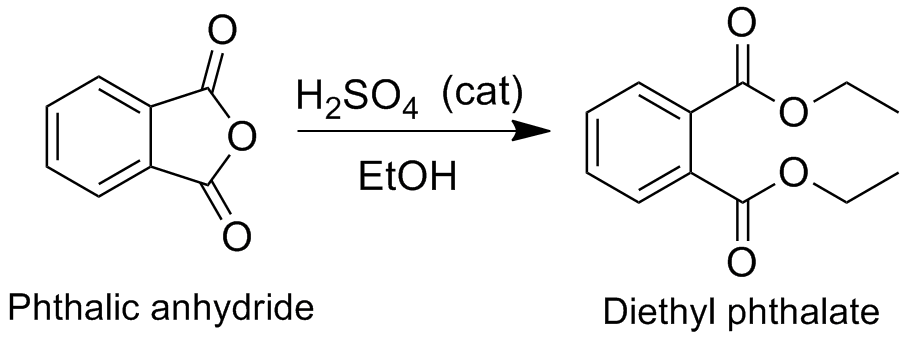Diethyl Phthalate (DEP)
Diethyl Phthalate (DEP) is a commonly used chemical compound, primarily known for its use as a plasticizer. It is a colorless, odorless liquid that is soluble in various organic solvents but only slightly soluble in water. DEP is produced by the esterification of phthalic anhydride with ethanol.
It is essential to handle Diethyl Phthalate with care, as it is a chemical compound. It's important to follow safety guidelines and use it in controlled environments to prevent potential hazards.
FAQ'S
DEP is a chemical compound classified as a phthalate ester. It is a colorless, odorless liquid that is commonly used as a plasticizer, solvent, and fragrance ingredient in various industrial and consumer applications.
A plasticizer is a substance added to plastics and polymers to increase their flexibility and durability. DEP is used as a plasticizer because it softens materials, making them more malleable and suitable for applications such as vinyl flooring, adhesives, and coatings.
DEP can be found in a wide range of consumer products, including cosmetics, personal care products, fragrances, adhesives, sealants, and some insect repellents. It is used in these products for its solvency and fixative properties.
DEP has been a subject of regulatory scrutiny due to potential health concerns. Regulatory agencies in various regions have imposed restrictions on its use in cosmetics and personal care products. It's essential to check product labels for ingredient information and follow recommended usage guidelines.
While DEP is generally considered safe when used according to regulations, there have been concerns about its potential health effects, including endocrine-disrupting properties. It's advisable to minimize unnecessary exposure, especially in sensitive populations.
Yes, DEP is commonly used in the fragrance industry. It serves as a carrier for fragrances and helps to prolong the scent of perfumes and colognes.
DEP can pose environmental concerns, particularly when it enters aquatic ecosystems. Due to these concerns, there have been efforts to reduce its use and find more environmentally friendly alternatives in some applications.
Yes, there is ongoing research and development to find alternative plasticizers and solvents that are considered safer and more environmentally friendly. Manufacturers are exploring options that meet regulatory requirements while minimizing potential health and environmental risks.
To ensure safe handling of products containing DEP, it's essential to follow the manufacturer's instructions and any safety recommendations provided on product labels. Additionally, individuals working with DEP in industrial settings should be aware of safety protocols and wear appropriate protective gear.
Yes, DEP is subject to regulations in various regions. Regulatory agencies, such as the U.S. Environmental Protection Agency (EPA) and the European Chemicals Agency (ECHA), have established guidelines and restrictions on its use to protect human health and the environment.






